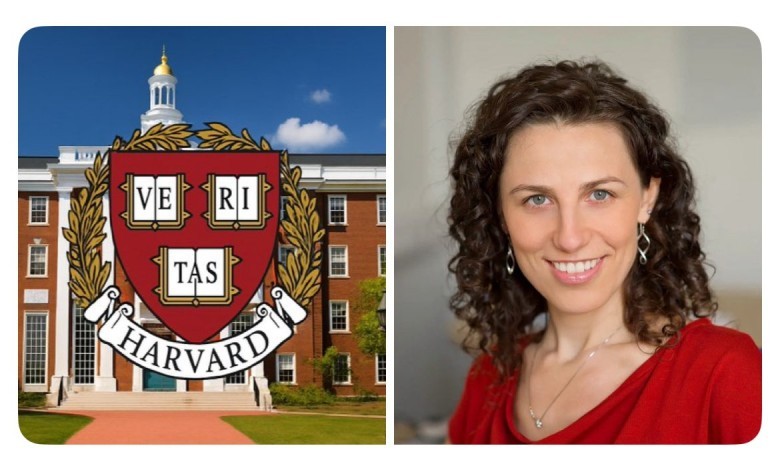views
The Ethics of Deception: A Harvard Professor's Downfall in a Data Fabrication Storm

The hallowed, often hushed, precincts of Harvard University, a global beacon of academic excellence and intellectual discovery, have been rocked by a seismic event. Dr. Eleanor Vance, once hailed as a luminary in behavioral ethics and a compelling voice on the psychology of honesty, now finds her illustrious career reduced to ashes. In a move that reverberates with historical significance, Harvard has taken the extraordinary step of not just firing but also stripping the tenure from one of its most prominent professors, all due to irrefutable evidence of systematic data fabrication.
Dr. Vance, whose lectures on ethical decision-making were legendary for their insightful depth and capacity to draw standing-room-only crowds, was, for many, the very embodiment of scholarly integrity. Her research on how subtle societal cues influenced truthfulness was foundational, frequently cited in top-tier academic journals and even shaping public policy discussions. Ironically, it is within the meticulously constructed frameworks of these very studies, particularly her seminal work, "The Anatomy of Truth: Priming Honesty in Everyday Life," that the insidious threads of scientific misconduct were painstakingly unraveled.
The genesis of this academic integrity violation wasn't a disgruntled student or a rival academic, but a dedicated, largely anonymous coalition of research integrity advocates. These independent behavioral scientists, driven by a commitment to scientific rigor and the crucial process of replication, began to notice unsettling patterns in Dr. Vance's published work. Initially, minor discrepancies were attributed to the inherent complexities of social science research. However, persistent attempts to reproduce her findings consistently yielded divergent results. As they delved deeper, examining publicly available datasets and even requesting raw data where possible, the discrepancies evolved into alarming statistical anomalies. The "too good to be true" results began to betray a chilling reality: the underlying data seemed engineered.
Their meticulously compiled report, brimming with statistical analyses and comparative data points, was anonymously presented to the editors of several scholarly journals that had published Dr. Vance's papers. The gravity of the claims spurred immediate action. Harvard University, known for its rigorous standards, launched an exhaustive internal investigation, engaging a specialized committee comprising renowned experts in statistics, psychology, and research ethics.
What the committee unearthed was a methodical pattern of deception. Evidence included manipulated spreadsheets where numbers were subtly altered to achieve statistically significant results, fabricated participant responses, and even entirely manufactured experimental conditions that had no basis in reality. The committee concluded that Dr. Vance had systematically engaged in data manipulation to support her hypotheses, blurring the lines between genuine discovery and outright invention. The brilliant insights she presented were, in part, a meticulously crafted mirage, a stunning betrayal of the very academic honesty she espoused.
For Dr. Vance, the public fallout was swift and brutal. She vehemently denied the initial accusations, characterizing them as a "witch hunt" orchestrated by professional rivals and threatening legal action against those who dared question her scholarly ethics. Yet, as Harvard’s comprehensive investigation progressed, the sheer weight of irrefutable forensic evidence became insurmountable. The pressure to publish in high-impact journals, the quest for groundbreaking results, and the relentless demands of publication pressure within academia are often cited as potential catalysts for such missteps. In Dr. Vance's case, however, the systematic nature of the fabrication pointed to a deeper, more troubling breach of ethical conduct.
The decision by Harvard’s powerful governing board was not a mere formality; it was a profound declaration. Stripping tenure, the gold standard of academic job security designed to protect intellectual freedom, is an exceptionally rare and consequential act, reserved for the gravest forms of academic misconduct. In taking this unprecedented step, Harvard unequivocally signaled its unwavering commitment to institutional integrity and its zero-tolerance policy for academic fraud.
The Harvard scandal rapidly became a global headline, sparking intense discussions across higher educationinstitutions worldwide. It served as a stark, indelible reminder that the pursuit of knowledge, the very bedrock of academia, rests entirely on the foundation of truth. Every scholar, from the most junior researcher to the most senior professor, is now acutely aware of the profound consequences of such violations.
Dr. Eleanor Vance's tragic fall casts a long shadow, a poignant testament to the destructive power of dishonesty within the scientific community. But in her disgrace, Harvard has forged a renewed commitment, ensuring that the relentless pursuit of truth, untainted by scientific fraud and rooted in uncompromising research ethics, will remain the unyielding guiding principle within its illustrious halls. The echoes of "Dr. Veritas" may now resonate with bitter irony, but the university's decisive action loudly proclaims that in the pursuit of knowledge, integrity will always reign supreme.




















Comments
0 comment